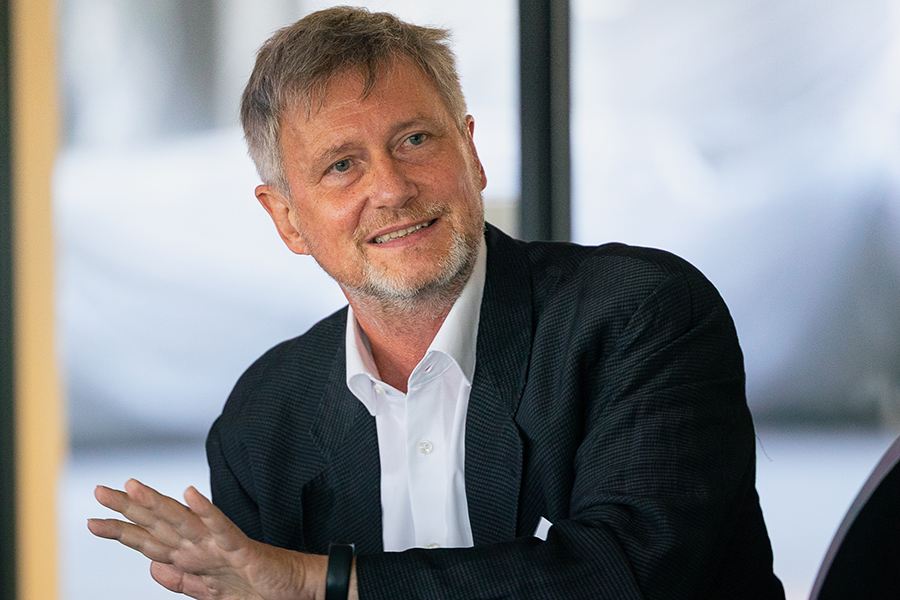Pioneer Award for Klaus-Robert Müller
BIFOLD co-director Prof. Dr. Klaus-Robert Müller, has been honored by the IEEE Computational Intelligence Society (CIS) with the Neural Network Pioneer Award 2026. The award recognizes his “contributions to the theory and practice of kernel-based learning.” Kernel-based learning is a key method in machine learning that identifies patterns in data using special mathematical functions.

Klaus-Robert Müller ©BIFOLD/Kevin Fuchs
The prize is awarded annually to individuals or teams of up to three people who have made significant contributions to the field at least 15 years prior to the award date. The award ceremony, which includes a plaque and $2,500, will take place at the IEEE World Congress on Computational Intelligence in 2026.
The IEEE CIS is one of the world’s largest professional societies dedicated to artificial intelligence. Since 1991, the Neural Network Pioneer Award has been presented by a committee of leading researchers in the global computational intelligence community and is considered one of the most prestigious honors in the field of AI, especially in neural networks. Awardees are often thought leaders whose work sets international standards and strongly shapes new directions in research. By significantly advancing both the theoretical foundations and practical applications of kernel-based learning, Müller joins an international group of researchers who have previously received the Neural Network Pioneer Award, including renowned figures such as Geoffrey Hinton (2006), Yoshua Bengio (2009), John Hopfield (1997), Yann LeCun (2014), and Demis Hassabis (2017). This recognition further highlights Müller’s research on both a national and international level, as an example of the excellent interplay between theory and application.
“I feel very honored to receive this award from the IEEE Computational Intelligence Society, which explicitly includes the outstanding work of my team. I am particularly pleased that our research on machine learning methods is finding such broad application internationally, from medical diagnostics to the natural sciences. This demonstrates how closely foundational research and practical applications are linked in this field,” said Klaus-Robert Müller.
A current focus of Klaus-Robert Müller’s work is AI for the sciences. His research has played a crucial role in developing new learning methods in quantum chemistry and digital pathology, leading to groundbreaking new insights. With his contributions to statistical learning theory as well as explainability and transparency of AI systems, Müller has provided major impulses for the responsible use of artificial intelligence. His work thus bridges the gap between theoretical basic research and practical applications.




